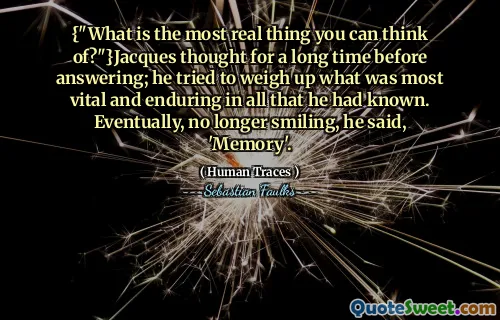When we study, discuss, analyze a reality, we analyze it as it appears in our mind, in our memory. We know reality only in the past tense. We do not know it as it is in the present, in the moment when it's happening, when it is. The present moment is unlike the memory of it. Remembering is not the negative of forgetting. Remembering is a form of forgetting.{...} We die without knowing what we have lived.
The quote from Milan Kundera's "Testaments Betrayed" highlights the complex relationship we have with reality and memory. It emphasizes that our understanding of the world is always filtered through past experiences and recollections. We perceive reality only in retrospect, as our memories shape and sometimes distort our present understanding. This suggests that the essence of experiences can be lost when we rely solely on memory, leaving us with a fragmented connection to the moments that have defined our lives.
Kundera's assertion that remembering is a form of forgetting points to the inherent limitations of memory. Our recollections are not exact replicas of experiences; instead, they are influenced by our emotions, contexts, and perceptions at the time of remembering. This leads to the poignant realization that we may navigate through life without fully grasping its richness. Ultimately, the passage evokes a sense of melancholy, as it suggests that we may never truly understand what it means to live in the present, and thus, we may leave this world without the complete knowledge of our life experiences.



